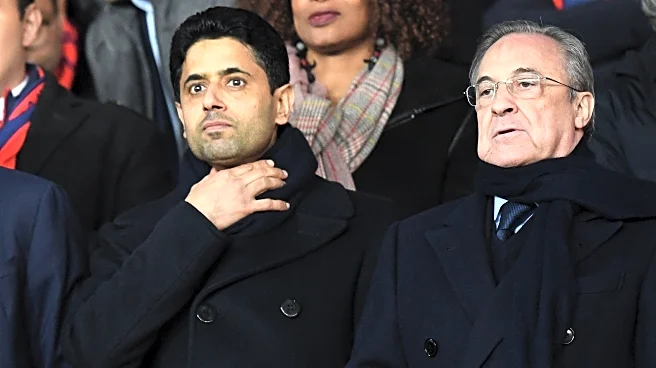What's Happening?
The South Korean Presidential Office is set to appoint a standing special counsel to investigate allegations surrounding the disposal of official seal paper bands and external pressure to drop charges
related to Coupang severance pay. According to spokesperson Kang Yu-jung, the appointment is expected to occur by Monday. The Standing Special Counsel Candidate Recommendation Committee has recommended two candidates, Park Kyung-chun and An Gwon-seop, both experienced legal professionals with backgrounds in prosecution and law. The president is required to appoint one of the recommended candidates within three days of receiving the nominations.
Why It's Important?
The appointment of a standing special counsel is significant as it underscores the South Korean government's commitment to transparency and accountability in addressing allegations of misconduct. This move could have implications for corporate governance and legal practices in South Korea, particularly concerning large corporations like Coupang. The investigation may lead to changes in how severance pay and corporate legal matters are handled, potentially affecting business operations and employee relations. The decision also reflects the government's stance on maintaining integrity within its legal and political systems.
What's Next?
Once appointed, the standing special counsel will begin the investigation into the allegations. The outcome of this investigation could lead to legal actions or reforms in corporate practices. Stakeholders, including Coupang and other major corporations, may need to reassess their legal strategies and compliance measures. The government may also face pressure to implement further reforms based on the findings of the special counsel. Observers will be watching closely to see how the investigation unfolds and its impact on South Korea's legal and business environment.
Beyond the Headlines
The appointment of a standing special counsel highlights the importance of legal oversight in maintaining corporate accountability. It raises questions about the influence of large corporations on legal processes and the need for checks and balances in corporate governance. This development may prompt discussions on ethical business practices and the role of government in regulating corporate behavior. The investigation could also lead to broader conversations about transparency and integrity in both the public and private sectors.











